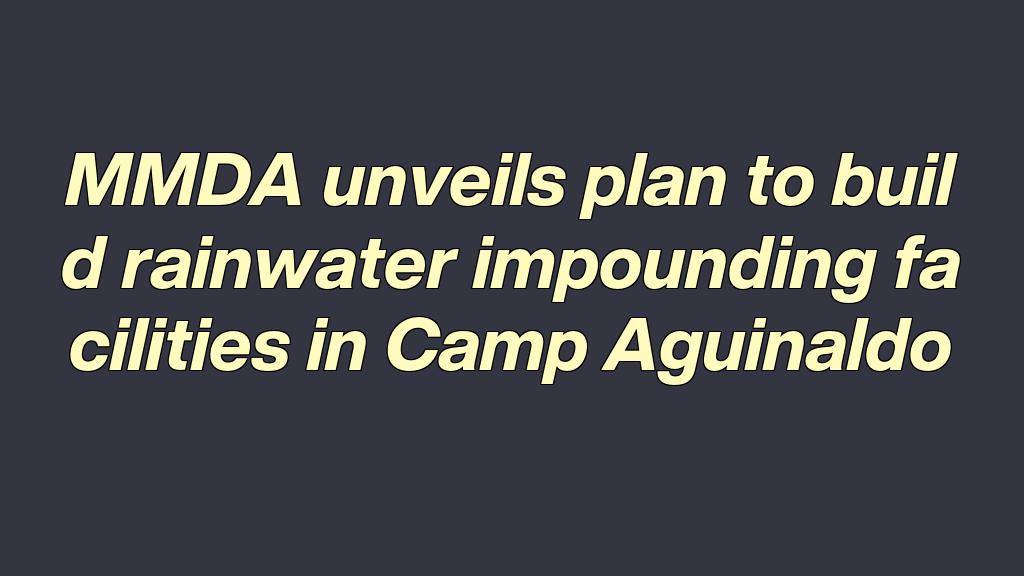MANILA, Philippines — The Metropolitan Manila Development Authority (MMDA) has proposed the construction of rainwater impounding facilities inside Camp Aguinaldo to ease recurring flooding along EDSA, with the proposed design released on Wednesday.
The plan calls for detention ponds that will temporarily store excess rainwater during downpours and gradually release it into the EDSA drainage system leading to Makiling Creek., This news data comes from:http://jyxingfa.com
According to the proposal, the project will be implemented in three phases covering 182 hectares: a golf course near Gate 2, another near Gates 3 and 4, and an open space near Gate 6.
MMDA unveils plan to build rainwater impounding facilities in Camp Aguinaldo
For the first phase near Gate 2, the detention pond has a 361-meter perimeter, a 4,650-square-meter area, an 8-meter depth, and a 37,200-cubic-meter capacity, designed for a 25-year return period (15.6 mm/hr over 24 hours) and exceeding the needed 36,945 cubic meters.
MMDA’s schematic shows that under normal weather, water bypasses the pond and traverses the lagoon to EDSA; during heavy rains, floodgates divert flows into the pond; after rains, pumps discharge stored water slowly to EDSA toward Makiling Creek.
The scope of work covers the impounding area, an operations and power house, drainage and electromechanical works, and landscaping and golf course restoration, with a treatment facility under consideration.

Officials said operations and maintenance arrangements and a memorandum of agreement were being discussed..
- Guyana votes amid oil boom, Venezuela tensions
- Kris Aquino is alive, says friend amid reports of death
- Trump to blacklist countries for imprisoning Americans
- PNP chief leads fun run
- Nartatez relieves Fajardo as PNP spokesman
- Afghanistan earthquake kills more than 800
- PH has chance of getting UNSC seat - Manalo
- SC acquits suspect in 2012 killing of Dutch aid worker over doubtful testimonies
- Youth group to SC: Stop postponement of BSKE
- Surfacing of WPS features ‘likely’ natural occurrence, not due to dumped crushed corals